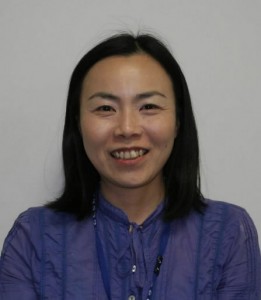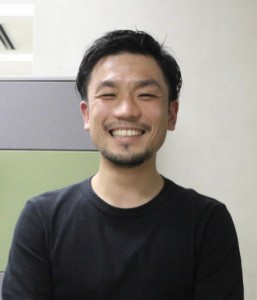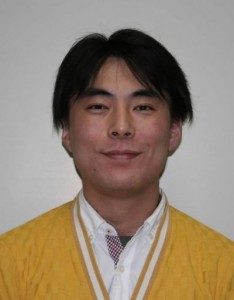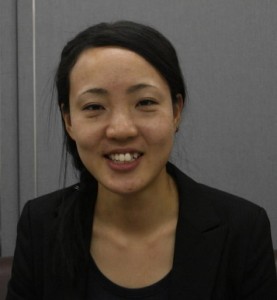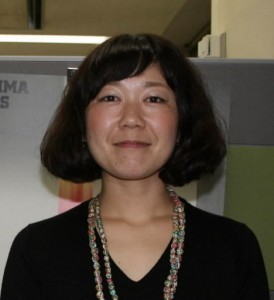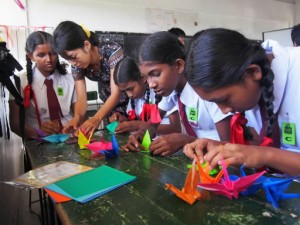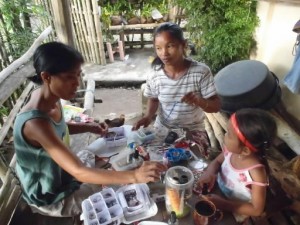Peace Seeds: Hiroshima Teens Report on Peace Issues, Part 11
Nov. 24, 2014
The Japan Overseas Cooperation Volunteers: Connecting the World, One Small Step at a Time
The Japan Overseas Cooperation Volunteers (JOCV) serves as a bridge between Japan and developing nations. It was established in 1965 by the Japan International Cooperation Agency (JICA) as part of Japan’s official development assistance (ODA). The JOCV offers volunteer assignments to young people from the age of 20 to 39, dispatching them for two years to nations in Asia, Africa, Latin America, and other parts of the world. They live in their assigned countries, speak the local language, and work together with the local people to contribute to the country’s development. The volunteers consider what they can do to support the welfare of the local people. Sometimes they face difficulties and struggles, but there are also many opportunities for them to meet kind people in the local communities and learn about different cultures.
Ten years ago, some JOCV volunteers began organizing A-bomb exhibitions. The volunteers have taken up the atomic bombings of Hiroshima and Nagasaki to appeal for peace and explain how the cities were reconstructed. We interviewed former JOCV volunteers about the joys of their work, the challenges they faced in the countries of their assignment, and their thoughts now as they reflect on their experiences. Their activities are a small but concrete step forward to creating a world where everyone can live in happiness and peace.
Pottery maker in the Philippines
Building trust through friendly greetings
Yukari Moriki, 38, Higashihiroshima City (Dispatched from December 2006 to December 2008, and from June 2009 to April 2010)
by Moe Nakano, first-year high school student
At the recommendation of a friend who had been dispatched to Thailand, Yukari Moriki applied to become a JOCV volunteer, looking forward to what would happen over the next two years.
During her first year, her work was focused on building relationships. When she asked someone to come to her pottery class, the person said yes, but then didn’t come. Noticing that the intent was to avoid creating hard feelings by saying no, she continued to ask each time they met, trying to build trust.
During her second year, she worked hard at making pottery. Instead of pine wood for the kiln, she used wood from mango trees. After returning to Japan, she went back to the Philippines again as a short-term volunteer because she wanted to light the kiln once more with the same people she had worked with.
Ms. Moriki said that she learned the importance of mutual understanding. Setting nationalities aside, she viewed the local people as human beings, like her. That was the first step, she said, toward growing closer to them.
Ms. Moriki’s two-year assignment as a JICA “domestic cooperation volunteer” will end next February. She is now pondering whether to pursue work in ceramics or in international cooperation.
Social worker in Sri Lanka
Impressed at the harmony between people of different religions
Yusaku Matsubara, 30, Aki Ward, Hiroshima (Dispatched from June 2012 to June 2014)
by Yoshiko Hirata, first-year junior high school student
When Yusaku Matsubara went to a local senior citizens’ club in Sri Lanka, he saw Buddhists and Muslims together. At first, he was concerned, wondering whether they could get along well, but he watched them enjoying each other’s company. He was impressed at their harmony and realized that he didn’t know enough about religion.
Periodically, Mr. Matsubara visited local senior citizens’ clubs to teach calisthenics. Toward the end of his time as a volunteer, a group of seniors told him not to lead them. “Even after you go back to Japan, we will continue doing the exercises you taught us, keeping you in our thoughts,” the leader of the club said, and then performed the calisthenics without Mr. Matsubara’s instruction. He thought, “Even after I’m gone, they will continue.”
The people of Sri Lanka care deeply about their families and their nation. “I learned that caring for the people around us is the key to happiness,” he said.
Civil engineer in Uganda
Overcoming the differences in ways of thinking
Eisuke Takeuchi, 36, Asaminami Ward, Hiroshima (Dispatched from March 2009 to March 2011)
by Yuri Ryokai, second-year high school student
Eisuke Takeuchi became a JOCV volunteer because he wanted to make use of his skill in civil engineering, which he acquired from working at a construction company. Before heading to Uganda, he was enthusiastic about the idea of paving the country’s streets with asphalt. However, after he arrived, he was unable to find the proper materials or financial resources to carry out the work. Moreover, it turned out that the local people did not want their streets paved with asphalt.
Mr. Takeuchi encountered a large gap between what he thought would be needed and what the local people actually wanted. He asked the local people about their needs and filled holes in the roads with sandbags and built wooden bridges.
“It’s important to build trust with the local people by respecting their thoughts and positions,” he said. After returning to Japan, he joined a company and was sent to Mozambique to teach road management. His experience in Uganda helped him with his work in Mozambique. He was able to respect the working style of others and successfully carried out his assignment.
Community development worker in the Philippines
Holding “thank you” in her heart
Mikiko Hattori, 29, Naka Ward, Hiroshima (Dispatched from October 2010 to October 2012)
by Chiaki Yamada, third-year junior high school student
In a village about a 10-hour bus ride to the southeast of Manila, Mikiko Hattori worked alongside local women, using old magazines to make accessories with “paper beads.” She became involved in this activity a year after she arrived there because it took her some time to decide how she could contribute to the community.
For a while, Ms. Hattori could not help wondering why she was there. About one year into her stay, a leader of the community said to her, “Thank you very much for coming to our village.” That was the first time she felt glad that she had come.
Ms. Hattori was able to see Japan more objectively from the Philippines. She enjoyed the friendly relationships she developed with her neighbors, something being lost in Japan, and realized the importance of helping one another. Now she would like to visit schools in Japan and engage in activities that will help students feel closer to the Philippines. “When you hear someone talk about the country, the emotional distance is reduced,” she explained. “People tend to think the Philippines is a dangerous country, but I hope there won’t be such misunderstanding or prejudice.”
P.E. instructor in Belize
It’s important to work together
Maki Hamanaga, 29, Naka Ward, Hiroshima (Dispatched from January 2008 to January 2010)
by Shiori Niitani, first-year high school student
In the beginning, Maki Hamanaga was reduced to tears a number of times because she was unable to communicate what she wanted to say to the principal of the elementary school where she was assigned. But after she changed her way of thinking from “Let me do this for you” to “Let’s do this together,” the situation gradually improved.
Neither physical education nor art was taught at the school until Ms. Hamanaga arrived. During her first year, she developed an annual curriculum and a textbook while teaching lessons. During her second year, she entrusted the lessons to local teachers and offered advice on how to proceed. She was well liked by the children in her P.E. classes. She fondly recalls what one student’s father told her. “My son remembers everything you say, Maki,” he said. “That’s because your words are so sincere.”
After living in this different culture for two years, Ms. Hamanaga now feels that everything will work out okay, whatever the situation. With a smile, she said, “If you’re interested in becoming a JOCV volunteer, you should do it!”
JOCV members have held A-bomb exhibitions in 62 countries
by Shiori Niitani, first-year high school student
The Japan Overseas Cooperation Volunteers (JOCV) began to organize A-bomb exhibitions in 2004. The first exhibition was held in Nicaragua to show the history of Hiroshima and its reconstruction to the people traumatized from the civil war in that country.
As of September 2014, 126 A-bomb exhibitions have been held by the JOCV in 62 countries. The exhibitions mainly include posters of Hiroshima and Nagasaki and movies about Hiroshima such as Barefoot Gen and Hiroshima: A Mother’s Prayer. The exhibitions are held at various venues such as parks and schools, with the contents of each exhibition shaped by the volunteers themselves, from folding paper cranes to staging puppet shows.
JOCV members from Hiroshima are required to visit Hiroshima Peace Memorial Museum before they are dispatched to their respective countries. Yusaku Matsubara, who organized an A-bomb exhibition in Sri Lanka, said, “In other countries, Hiroshima is closely associated with the atomic bombing. I would like to have detailed knowledge of the atomic bombing so I can talk about it to people overseas. But it’s not enough to only tell about the atomic bomb. We also have to learn about the civil wars and conflicts in the world. It’s important to share our wish for peace together with people abroad.”
The Japan Overseas Cooperation Volunteers
by Miyu Okada, second-year junior high school student
The Japan Overseas Cooperation Volunteers (JOCV) began with the idea of transferring the technical skills of Japanese people to developing countries to build friendship as well as making use of the volunteers’ experiences back in Japan.
A total of about 40,000 people have been dispatched to 88 countries around the world. Currently, about 1,900 volunteers are serving in 70 countries. The JICA Chugoku International Center holds meetings to explain about the activities of the JOCV in the spring and fall when recruiting for new JOCV members takes place.
There are more than 120 job categories. Popular assignments are those that require no special qualifications such as “community development,” which involves clarifying and addressing problems in the community, and “youth activities” for local children.
The total number of applicants from across Japan each year is about 3,000, and many are university students and people already working at jobs. After they return to Japan, 60 percent find work at private companies and public-service organizations. Less than 20 percent go back to their previous places of employment. Lately, the number of private companies seeking to hire JOCV returnees has grown. Hiroyuki Kawamoto, 41, of the JICA Chugoku office, explained, “This is probably because private companies that want to expand their business to developing countries are interested in recruiting former JOCV members who can work on the front line from the start, since they are strong mentally and have experienced life abroad.”
Junior Writers’ Comments
Shiori Niitani, first-year high school student
I’m really interested in developing countries. When I was in elementary school, I had an English teacher who was black. Because of his class, the rest of the world felt closer to me. Later I saw a DVD made by UNICEF, which showed the reality of poverty in developing countries. I was shocked to see the suffering of these people, who are human beings just like us.
I was glad to talk with the JOCV returnees and hear many things about the countries where they served. I had read articles and books about these countries, but I learned much more from our interviews. I felt even more strongly that I want to visit developing countries one day. I hope to make use of this experience in the future.
Chiaki Yamada, third-year junior high school student
I was surprised to hear there were no seats for the toilets where Ms. Hattori was in the Philippines. She said she enjoyed her exchanges with the local people. I was envious because in my community, there isn’t much communication between neighbors. I would like to become a JOCV volunteer and enjoy this kind of exchange with the local people.
Moe Nakano, first-year high school student
Before I took part in the interviews with the JOCV returnees, I participated in JICA’s meeting which explained about the activities of the JOCV. I was surprised to learn that there are so many job categories. My image of “overseas cooperation” was “digging wells,” so I didn’t expect to hear that people can contribute with other skills, like ceramics and sports. I realize that everyone can take part in their own way.
In the future, I’d like to get involved in activities for overseas cooperation. To realize this goal, I want to become as patient and flexible as Ms. Moriki.
Miyu Okada, second-year junior high school student
From these interviews, I was surprised to find out that there are a variety of different job categories in the JOCV. My image of JOCV activities was that the volunteers talk with the local people and contribute to the development of the area. I learned that there are many jobs, such as teaching ceramics and sports, in which the volunteers can make use of their own special skills, experiences, and qualifications.
To select volunteers, the JOCV carries out a first and second screening, and the candidates must take part in a 70-day training before they’re dispatched overseas. In the training, they learn the local language and study about the region. Though it’s a hard process, I was amazed to hear that more than 3,000 people apply to be volunteers each year, and those that are chosen are then sent to about 70 countries.
The interviews taught me that the JOCV volunteers are making various efforts to promote mutual understanding with people of different ethnicities, cultures, and customs. I’d like to deepen mutual understanding with my friends abroad and learn from each other about different cultures and lifestyles.
Yoshiko Hirata, first-year junior high school student
I felt encouraged when Mr. Matsubara said to us, “If you’re interested in something, you should take action.” Even when I was interested in something and I wanted to do it, I always hesitated, thinking, “What if I fail?” and “I don’t think I can do it, so I shouldn’t even bother.” Mr. Matsubara said, “I was worried at times, but I’m glad I did it.” I’d like to keep a positive attitude and take action like that, too.
Yuri Ryokai, second-year high school student
This is the first time I wrote an article without anyone’s help. I realized again that writing an article is hard, because my sentences are kind of stiff. I hope we will be able to have a lot of interesting experiences, like Mr. Takeuchi, and see things from different perspectives.
(Originally published on November 24, 2014)

